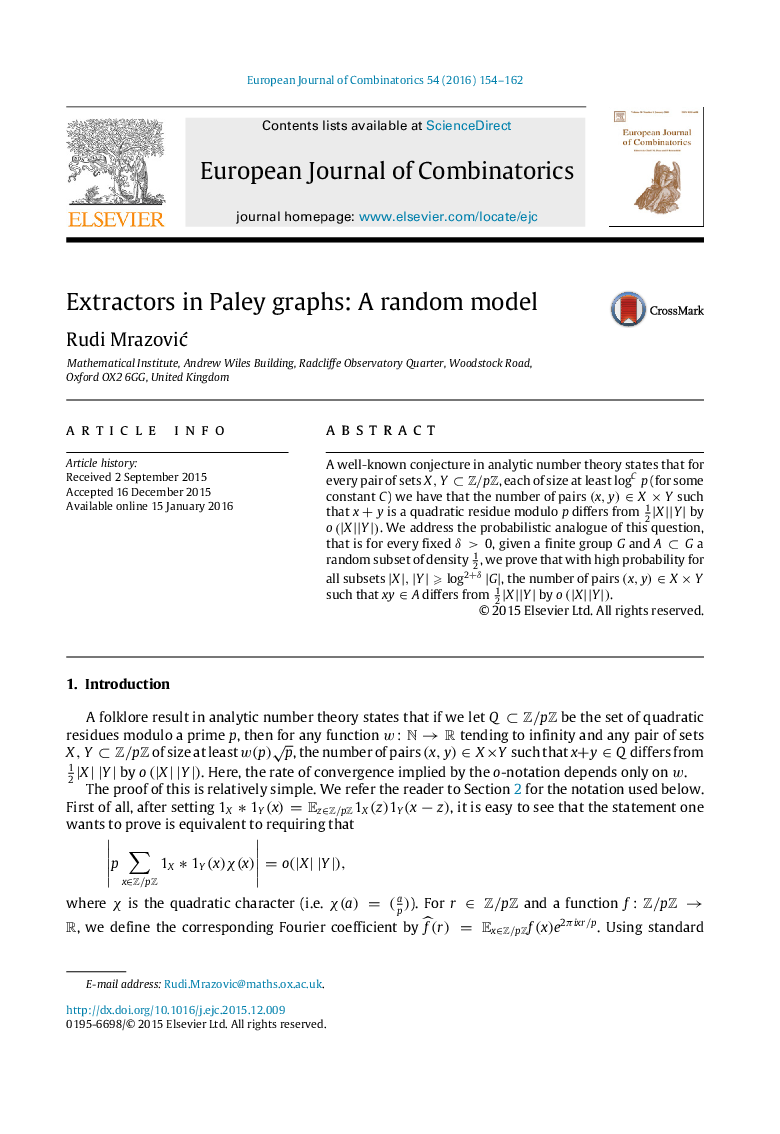| Article ID | Journal | Published Year | Pages | File Type |
|---|---|---|---|---|
| 4653304 | European Journal of Combinatorics | 2016 | 9 Pages |
Abstract
A well-known conjecture in analytic number theory states that for every pair of sets X,Y⊂Z/pZX,Y⊂Z/pZ, each of size at least logCplogCp (for some constant CC) we have that the number of pairs (x,y)∈X×Y(x,y)∈X×Y such that x+yx+y is a quadratic residue modulo pp differs from 12|X||Y| by o(|X||Y|)o(|X||Y|). We address the probabilistic analogue of this question, that is for every fixed δ>0δ>0, given a finite group GG and A⊂GA⊂G a random subset of density 12, we prove that with high probability for all subsets |X|,|Y|⩾log2+δ|G||X|,|Y|⩾log2+δ|G|, the number of pairs (x,y)∈X×Y(x,y)∈X×Y such that xy∈Axy∈A differs from 12|X||Y| by o(|X||Y|)o(|X||Y|).
Related Topics
Physical Sciences and Engineering
Mathematics
Discrete Mathematics and Combinatorics
Authors
Rudi Mrazović,
